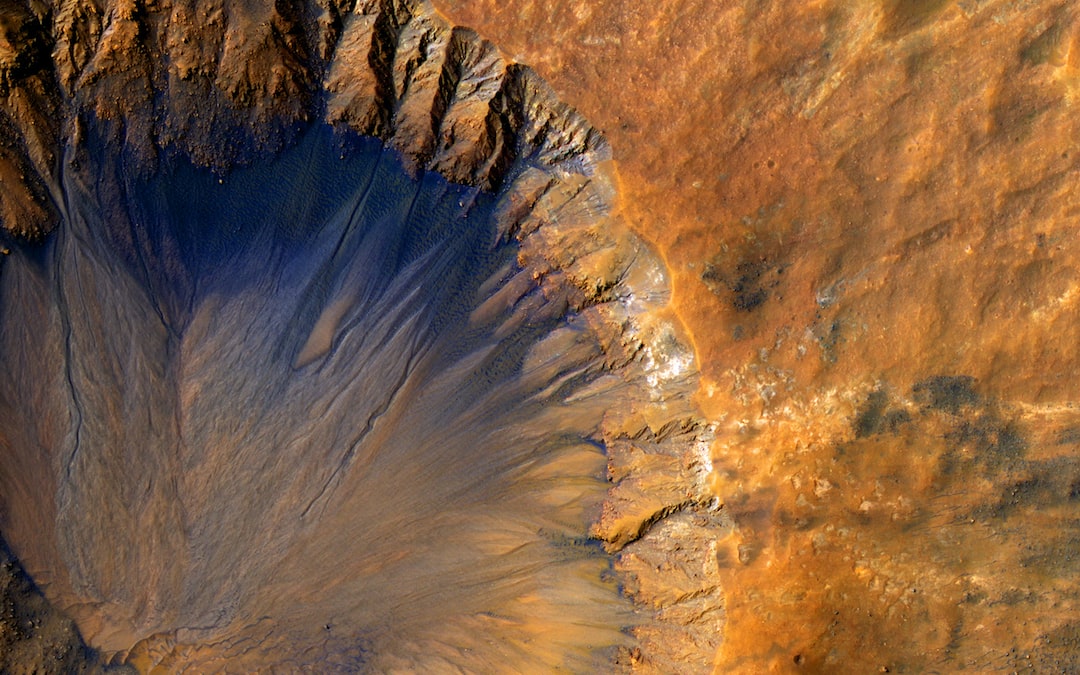Alright fam, so let’s talk about something that’s both mega futuristic and also kinda confusing—the ethics of space exploration. Yeah, you heard me right. We’re diving into whether it’s actually cool for humans to keep pushing beyond our little blue marble. I mean, space is sexy AF—there are freaking black holes, and shooting stars, and who knows, maybe even aliens (don’t @ me for that one, k?). But just ‘cause something’s cool doesn’t necessarily mean we should be doing it, right?
Okay, real talk: space exploration isn’t just about taking a selfie in zero gravity or harvesting some moon rocks for your crystal collection. It’s about big, mind-blowing moves that could literally change the future of humanity. Sounds dramatic, but it’s true. Yet, with all that power comes some major ethical concerns, and bruh, those decisions can be galaxies away from simple.
So, where do we draw the line? Should we even have one? What about those vibes of colonizing Mars—are they totally clutch or are we just messing up the universe one planet at a time? Before you hit that "I’m ready for Elon Musk to beam me to Mars" button, let’s get into the nitty-gritty. Grab your space helmet, ‘cause things are about to get deep. 🌌
It’s All About The Dream: Why We Wanna Go to Space
Let’s be real. The idea of space travel has always been a huge mood. It’s literally the biggest dream humans have ever dreamed. From moon landings to interstellar travel, the scope of what we can achieve seems limitless. But wait, hold up. Why exactly are we so obsessed with leaving Earth? Is it about saving humanity? Or are we just greedy for more resources? Let’s break it down.
1. Space as the Final Frontier
Welcome to the OG sci-fi dream—space as the ultimate place to explore. No one really knows what’s out there, and that’s exactly why it’s so dang attractive. It’s the one place left where you can totally vibe with the unknown. Imagine discovering new planets, or even galaxies, with a swipe of your rocket ship. It’s basically like playing a never-ending video game on God Mode.
But on the flip side, the unknown can be a huge risk, too. Aren’t we stepping too far into the abyss without fully understanding the consequences? Exploring space means interacting with environments we know nothing about. We could be starting chain reactions we can’t control. Or worse—what if we bring back something nasty from a distant planet? Think about the implications of introducing an alien virus or contaminating another world with Earth’s bacteria. It’s like atmospheric Tinder, except the stakes are way higher. 🌠🤷♂️
2. Space Travel = The Ultimate Backup Plan
Imagine Earth is a computer and it crashes—usually, the solution is to have a backup, right? Well, space could be humanity’s backup plan. Climate change, overpopulation, and maybe even nuclear war could make Earth unlivable. That’s where space colonization comes in. It’s like installing a fresh OS on a new drive (except the drive is like Mars or something). Big brains like Stephen Hawking tell us that spreading out into space is a must if we wanna survive long-term. 🚀🪐
However, this argument ain’t bulletproof. If you think about it, maybe instead of bailing out to space, we should invest those billions into fixing the problems here at home. For some people, the push for space colonization feels like rich people’s escapism, a way for the 1% to ditch Earth when the going gets tough. Meanwhile, everyday folks are left dealing with the trash they left behind. Ethical or nah?
3. Show Me the Money: Economic and Technological Gains
Alright, let’s get down to the cheddar. Space exploration isn’t just about saving humanity—it’s also mad profitable. Think of all the new tech that could emerge from space research. Like, GPS was a direct result of space exploration, and so were tons of medical advancements. And let’s not sleep on the opportunity to mine asteroids. Some of these bad boys are full of rare metals—imagine the crazy bank that could be made.
But there’s some shade here too. 🤔 Is it ethical to prioritize money and tech advancements over the potential harm that could come from space activities? What about the astronomical costs involved? Space exploration soaks up a huge amount of cash that could otherwise go towards solving problems like poverty or disease on Earth. How do we justify the expense?
The Dark Side: Ethical Concerns of Space Exploration
Okay, we’ve established that space exploration has some sweet benefits, but now let’s flip the script and talk about the darker stuff. Every epic adventure has its downside, right? We need to keep it 100 and confront the ethical minefield that comes with space exploration. Before we all collectively decide to "pew pew" our way to the stars, let’s talk about the moral dilemmas we’re creating along the way.
1. Messing With Other Worlds
Picture this: We finally land on Mars and set up shop. But we’re not alone—there’s simple life on the planet. Cool, right? Or is it? 🤔 Here’s the kicker: What rights do these Martian microbes have? I mean, they were there first! Are we just gonna roll up and colonize their crib without even asking? Kinda sus, no?
Let’s go even deeper. By colonizing or exploring other celestial bodies, we could basically be invading someone else’s turf. There’s a legit risk that our activities could contaminate these ecosystems—assuming they even exist. And if we happen to stumble upon more advanced life forms, what then? Are we enslaving ourselves to be ‘galactic colonists’? Exploring Space could be the new colonization—just with planets instead of continents. Some deep stuff to consider.
2. The Space Trash Dilemma
When something goes up into space, eventually, it has to come down—or just keep orbiting Earth forever, adding to the space junk floating around. Imagine all the satellites, old rockets, and debris bouncing around up there. It’s basically the universe’s garbage can at this point. And guess what? This isn’t just an aesthetic issue—space junk poses real dangers. Every piece of debris is a potential bullet that could smash into a working satellite or a crewed spacecraft.
Now here’s where it gets sticky. Even space-faring nations can’t agree on how to clean up this mess. Who’s responsible for getting rid of space trash? And better yet, who should pay for it? No global regulations exist for this yet, so it’s a bit of a hot potato. The more we explore, the more junk we create. Is it ethical to keep exploring with zero accountability for the cosmic litter we’re generating? Kinda whack if you think about it. 🌠💥
3. The Impact on Earth
So, here’s the tea: launching stuff into space affects Earth more than you might think. Rockets operate on big-time fuel, and you best believe that jetting off to space leaves a giant carbon footprint. And get this—every rocket launch can punch holes in the ozone layer, which adds to global warming. Not exactly what we need while sweating it out in the middle of climate chaos.
Also, there’s the issue of how we distribute resources on Earth for space exploration. Millions of dollars are dumped into space programs while poverty and environmental issues plague nearly every corner of our planet. Shouldn’t we be putting those resources to better use here? The ethical question is whether we have the right to go "out there" while there’s still so much to fix "down here."
But Wait, There’s More: Nationalism and Politics in Space
If you thought politics on Earth were complicated, just wait till we get to space. The possibilities for global, or interplanetary, conflicts are endless. Nationalism and space exploration go hand-in-hand like peanut butter and jelly—sometimes with equally sticky results. Who owns the moon? Does Mars belong to SpaceX since their flag was apparently there first? Lemme tell you, it’s a mess up there.
1. Space as the New Battleground
Remember the Space Race between the U.S. and the U.S.S.R.? That was only round one. Now, imagine how things are gonna heat up as more countries (and, yep, even private companies) start flexing their muscles in space. Whoever controls space has a huge strategic advantage over Earth, and that could lead to some wild showdowns.
Just think—satellites have already become a critical part of military communication and surveillance. Weaponizing space isn’t just sci-fi anymore; we’re basically living in a low-key version of "Star Wars." The ethical dilemma here is obvious: Should space exploration lead to new forms of warfare? And who’s gonna make the rules to keep things from getting totally out of hand? Someone has to do some serious thinking here, or we’re gonna end up playing "Risk" on a galactic level.
2. Who Gets to Claim Space?
Picture this: Elon Musk claims Mars for SpaceX. China sets up bases on the Moon. The U.S. stakes out a bunch of asteroids. The concept of who owns what in space is really tricky. Does the moon belong to a country? Can a private company harvest resources from an asteroid, and if so, who benefits from that?
The big question is whether space should belong to everyone, as a shared resource for the whole human race…or whether it’s gonna devolve into a territory-grabbing free-for-all. How would that even work? Do companies or countries have a right to mine, colonize, or otherwise exploit celestial bodies without global consensus? Spoiler alert: the law is super murky here.
Ethics vs. Innovation: The Entrepreneurial Space Boom
You can’t talk about space exploration without mentioning the wild rise of private companies jumping into the cosmic game. NASA had the monopoly for decades, but now we’ve got commercial ventures like SpaceX, Blue Origin, and others ready to take space travel mainstream. Giant leaps, for sure. But are we ready for the ethical bombshell they’re bringing with them?
1. SpaceX: The Good, the Bad, and the Ugly
Elon Musk, you either love him or you hate him, but you can’t deny he’s pushing boundaries. SpaceX is out here doing things that were once thought impossible, from reusable rockets to that wild Starship ambition to colonize Mars. Sounds like the future, right? But hold up. There’s a flipside to all that innovation.
First, SpaceX is a private company, not beholden to public interest in the same way NASA is. Their missions are driven by profit and Musk’s grand vision, rather than a commitment to scientific progress or ethical responsibility. Plus, SpaceX’s ambitions could crowd out other players, especially those from less wealthy countries, deepening inequality in a place where we’d hope to leave such things behind.
SpaceX might be building humanity’s ticket off Earth, but the question is, should they be doing it without more global oversight? Are we comfortable letting one billionaire dictate the course of future civilization? Hell of a question to think about.
2. Bezos’ Blue Origin: To Space for Fun (and Profit)
Not to be outdone, Jeff Bezos launched Blue Origin with the goal of making space travel accessible to everyone. Well, everyone who can afford it. Ever feel like capitalism is sneaking into every corner of your life? Yep, even into the void of space. 🙄
Sure, getting civilians into space is cool and all, and we might even see a future where space tourism is as normal as a cross-country flight. But the flip side is this: it opens space up to mass commercialization. Already, companies are talking about setting up space hotels, mining ventures, and even zero-gravity sports. Do we really want to take our consumerism to the stars? Ethical question mark, for sure.
And let’s not forget the environmental cost—again. All those suborbital joyrides are not exactly carbon-free. Should the wealthy elite get to burn up resources for a quick jaunt into zero-G while the rest of us are advised to bike to reduce emissions? Something’s a bit off about that dynamic, don’t you think?
The Impact on Indigenous and Marginalized Communities
We barely scratched the surface of Earth’s ethical nightmares, so are we really ready to go cosmic? There’s a lot of concern about how space exploration could impact Indigenous and marginalized communities on Earth, including spiritually and economically. That, in part, is why the quest for space could be more divisive than unifying. 🌍💔
1. Displacement and Disruption
If space exploration kicks into gear the way some are hoping, massive resources will need to be committed. Land and significant portions of the Earth’s surface would likely have to be repurposed for things like launch sites, build facilities, and more. This is where it gets sketchy.
Remember what happened when "progress" came to Earth? Indigenous people got displaced, cultures were destroyed, and ecosystems were messed up. Now think about the parallels with space exploration. The building of spaceports, mining sites, and other infrastructure could again lead to the displacement of Indigenous peoples and the destruction of sacred lands.
Ironic, right? In the name of advancing humanity, we could be setting some of our most vulnerable communities even farther back—destroying what little claim they have to Earth in the process.
2. Who Benefits, Who Gets Left Behind?
This isn’t new: those who have the power, connections, and money will likely be the ones to benefit from space exploration first. The BIPOC community, economically disadvantaged populations, and those in developing nations might not get a seat on the rocket. 😬
It’s possible that the benefits of space exploration—like economic gain or even a future home on another planet—could only be available to the wealthy and privileged. Meanwhile, marginalized communities might suffer from the adverse effects without ever reaping the rewards. They say space is for everyone, but, like, is it really?
The Role of International Cooperation
If we’re gonna avoid turning space into another battlefield or exclusive playground for the rich, international cooperation is gonna be key. Imagine if we could get all the countries and companies involved to sit down and hash out the rules together. Sounds like a dream, but can it be a reality?
1. Setting Up Space Laws
As much as we love the idea of space being wild and free, we’re already at the point where we need some rules up there. Without international agreements, space could become the next Wild West—lawless, risky, and dominated by whoever’s got the best tech. The only current legal framework is the 1967 Outer Space Treaty, but, bruh, that thing is like dial-up internet—outdated. 😅
We need up-to-date, binding global agreements that cover everything from space militarization to resource extraction and environmental protection. But here’s the catch—who’s gonna play referee? And what happens when countries or companies decide to go rogue? These questions need answers, stat.
2. A Global Approach to Space: Sharing the Stars 🌍✨
Let me drop this truth bomb: space should be the ultimate unifier, not a new way for us to compete or divide ourselves. Seriously, can’t we at least try to work together when it comes to exploring the freaking universe? The International Space Station (ISS) is a solid example. Scientists from around the world collaborate daily on some seriously cool projects, sharing data and expertise. That vibes with what space exploration should be about, right?
But to really make this work on a larger scale, we need to start thinking about space as a shared resource. That means more cross-border research ventures, sharing the tech that makes it happen, and — yes — discussing who gets to do what up there and how to keep it fair. If done right, space exploration could bring us closer together, globally, and challenge us to think in ways that transcend national borders and petty politics. 🌐
Possible Ethical Frameworks: Making Space Ethical AF
You’re probably wondering, how do we take on all these issues and make space exploration ethical for real? Spoiler alert: there’s no one-size-fits-all solution. But some frameworks could guide us through this cosmic quagmire. Ready for the rundown?
1. The Precautionary Principle
This principle is all about being super cautious when we’re unsure about consequences. Remember, we’re dealing with an environment we barely understand. The Precautionary Principle suggests that we should avoid doing anything in space that we aren’t 100% sure won’t cause harm—either to us, other species, or even to the cosmos itself.
If Earth’s history tells us anything, it’s that we’re not always the best at predicting the long-term outcomes of our actions. By applying this principle, we avoid bulldozing into space and potentially messing up even more environments. In short, let’s not be careless in making moves just because we can. It’s that simple.
2. Planetary Protection 🛡️
Planetary Protection isn’t just about stopping alien life from invading Earth (although that would be dope post-pandemic, right?). It’s actually a set of guidelines to prevent Earth organisms from contaminating other planets and vice versa. This would minimize our impact until we fully understand what we’re dealing with. 👽
If we adopted these guidelines universally, it could help set the bar for how we conduct ourselves in space—respecting other worlds, even if they’re barren deserts. At least until we fully comprehend what’s there. It’s like washing your hands before making dinner. You wouldn’t want to spoil the meal, would you?
3. The "Fair and Equitable" Rule
Here’s an idea: everyone gets a piece of the pie. By splitting the proceeds from space exploration more evenly among global communities, we reduce the risk of deepening socio-economic divides. This rule would also apply to what we’re taking from space—making sure wealthier nations and companies don’t hog all the resources.
That means sharing not just the fruits of exploration, but also the costs. Sounds fair, right? But the big challenge here is that this kind of framework needs broad international support—and we all know how hard it is to get everyone on the same page. 😅 Still, it’s worth considering.
Alright, Let’s Get Real: The Future We Want
Now that we’ve covered the highs and lows, it’s time to ask the billion-dollar question: what kind of future do we actually want? Are we gonna rush head-first into space without looking back, or are we going to slow our roll to make sure we’re making the right moves? It’s about finding that balance between chasing our wildest dreams and staying true to our values.
1. A Future That’s Sustainable
We don’t want to do with space what we’ve already done with Earth—i.e., exploit it until it’s a wreck. A sustainable approach means ensuring that our cosmic ambitions don’t lead to disaster. We need to focus on making sure that our presence in space doesn’t destroy the environments we’re exploring or cause irreversible damage.🌱
It’s not just about bringing tech from space back to Earth to help us live better here; it’s also about setting the right example. Space is the biggest stage we’ll ever have. Let’s not be the bad actors who ruin the show.
2. A Fair Space for All
Home stretch y’all. As we look toward this uncharted territory, we gotta make sure that space doesn’t become just another playground for the elite. 🌌 We need to create policies and frameworks that ensure space truly is for everyone—all nations, all peoples, all communities.
That means tackling diversity, equity, and inclusion even in the stars. No one should be left out of the conversation just because they don’t have the bank to build a rocket. The more voices at the table, the more we can build a cosmic future that’s just as rich as the universe we’re diving into.
FAQ: You Asked, I Answer ✨
Q: Does space exploration give us new tech IRL?
A: Absolutely. From GPS to the mini-cameras inside your smartphones, a lot of tech we take for granted came from space research. Even anti-icing systems on planes came out of space tech. So yeah, exploring the cosmos definitely gives us rad gadgets here on Earth.
Q: What’s Planetary Protection really about, though?
A: It’s basically a set of guidelines to make sure we don’t cross-contaminate. We’re not trying to mess up Mars with Earth bacteria (or vice versa). The idea is to keep each celestial body in its natural state as much as possible while we explore.
Q: Is space exploration really better than fixing Earth?
A: This one’s tough. Ideally, we should be doing both. Space exploration can help us find new resources and even solve some Earth problems… but that’s assuming we don’t mess things up more in the process.
Q: Aren’t space and ocean exploration kinda similar?
A: Low-key, they are. Both are frontiers we understand very little about, and both are massive when it comes to the role they play for humanity’s future. One thing though—space gets waaay more attention because, well, it’s space. But don’t sleep on ocean exploration. There’s some wild stuff going on down there, too. 🌊
Q: Who owns space, though?
A: No one, officially. The 1967 Outer Space Treaty makes it clear space is not ownable territory. But…umm… that hasn’t stopped countries and companies from low-key trying to claim it anyway.
Final Thoughts: To Infinity and…Humility 🚀
Hey, space is the next big thing, and it’s got colossal potential. But that potential comes with a ton of ethical questions. By leaning into thoughtful, sustainable exploration, we can ensure that our adventures into the cosmos are as rad as possible—without leaving a wake of cosmic regret. Let’s be the generation that carries the right vibes to the stars.
And whatever paths we take into the infinite void, let’s remember this isn’t just about what we can do—it’s about what we should do. We’re not just trailblazers; we’re caretakers of this universe, too. 🌌
So the next time you look up at the stars, remember: the future is ours to build. Let’s do it right.
Sources and References 📚
- Hawking, Stephen. Brief Answers to the Big Questions. Bantam Books, 2018.
- Kaku, Michio. The Future of Humanity: Terraforming Mars, Interstellar Travel, Immortality, and Our Destiny Beyond Earth. Doubleday, 2018.
- United Nations Office for Outer Space Affairs (UNOOSA). "The Outer Space Treaty at a Glance." Accessed March 2023.
- Musk, Elon. "Making Humans a Multi-Planetary Species." New Space, Vol. 5, No. 2, 2017, pp. 46-61.
- "Space Debris and Human Spacecraft." NASA. Accessed March 2023.
- "Planetary Protection." NASA Office of Planetary Protection, updated July 2021.
- "The Costs and Benefits of Space Exploration." The Planetary Society. Published April 2021.




